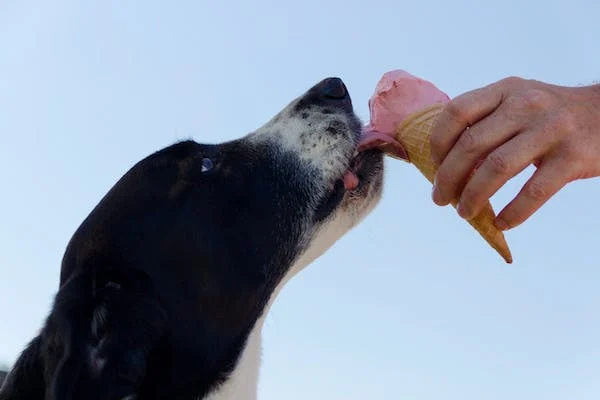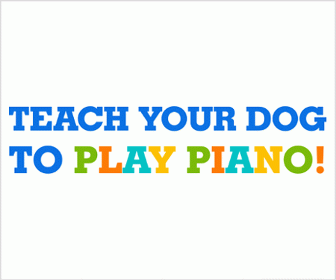Table of Contents:
- Introduction 1.1 Why It’s Essential to Choose Safe Foods for Your Dog 1.2 The Importance of a Balanced Diet for Dogs
- Lean Meats: A Protein-Packed Pleasure 2.1 Cooked Chicken: A Canine Favorite 2.2 Turkey Treats: Tasty and Nutritious 2.3 Beef Delights: Lean and Delicious 2.4 Lamb Lovers: A Special Occasional Treat 2.5 Precautions: Removing Bones and Excess Fat
- Eggs: A Nutrient-Rich Choice 3.1 The Benefits of Eggs for Dogs 3.2 Cooking Eggs Safely for Your Furry Friend 3.3 Incorporating Eggs Into Your Dog’s Diet
- Wholesome Grains: Rice and Pasta 4.1 The Role of Grains in a Dog’s Diet 4.2 Cooked Rice: Gentle on Your Dog’s Stomach 4.3 Pasta Pleasures: A Carbohydrate Boost
- Crisp Veggies and Fruits: Nature’s Bounty 5.1 Vegetable Delights: Carrots, Green Beans, Peas 5.2 Sweet Potato Treats: Nutritious and Tasty 5.3 Fruit Selections: Apples, Blueberries, Strawberries, Bananas 5.4 Dangerous Fruits to Avoid: Grapes, Raisins, Citrus
- Peanut Butter: A Lip-Smacking Joy 6.1 Understanding the Love for Peanut Butter 6.2 Choosing Safe Peanut Butter for Dogs 6.3 Creative Uses of Peanut Butter for Your Canine Companion
- Probiotic-Rich Yogurt: Healthy and Happy 7.1 The Benefits of Yogurt for Dogs 7.2 Selecting the Right Yogurt for Your Dog 7.3 Serving Yogurt Safely and Moderately
- Cheese: A Tasty Temptation 8.1 Dogs and Their Love for Cheese 8.2 Types of Cheese Suitable for Dogs 8.3 Feeding Cheese Responsibly
- Precautions and Considerations When Feeding Human Foods 9.1 Consulting Your Veterinarian 9.2 Introducing New Foods Gradually 9.3 Monitoring for Allergies and Sensitivities
- Conclusion 10.1 Summary: Nourishing Your Dog with Safe Human Foods 10.2 Embracing the Joy of Treating Your Dog Responsibly

As a responsible dog owner, you want the best for your furry companion, including providing them with tasty treats. While it’s essential to feed your dog a balanced diet formulated for their specific needs, there are some human foods that can safely complement their meals or serve as occasional delights. In this blog post, we’ll explore a list of human foods that are generally safe for dogs and the precautions you should take. Before you start sharing your dinner plate, let’s make sure your pup’s health and happiness come first!
- Lean Meats: A Protein-Packed Pleasure
Lean meats such as cooked chicken, turkey, beef, and lamb can be a wonderful addition to your dog’s diet. Protein is crucial for their overall health, muscle development, and energy levels. Just be sure to remove any bones and excess fat, as they can pose choking hazards and lead to gastrointestinal issues. Offering these meats as treats during training sessions can be an excellent way to reward good behavior and strengthen your bond.
- Eggs: A Nutrient-Rich Choice
Eggs are an excellent source of high-quality protein and provide essential nutrients for your dog. Make sure to cook the eggs thoroughly to avoid the risk of salmonella. You can serve scrambled or boiled eggs as a special treat, or even mix them into your dog’s regular meals to enhance their nutritional value.
- Wholesome Grains: Rice and Pasta
Plain, cooked rice and pasta can be gentle on your dog’s stomach, making them ideal choices when they have digestive issues. These grains can provide a quick source of energy and may be useful during times of illness or as a bland diet for sensitive stomachs. Remember to serve them in moderation, as dogs primarily thrive on a protein-based diet.
- Crisp Veggies and Fruits: Nature’s Bounty
Offering some vegetables and fruits can be a delightful way to introduce added nutrients and fiber to your dog’s diet. Carrots, green beans, peas, and sweet potatoes are generally safe and can be served cooked or raw. Fruits like apples (seedless and coreless), blueberries, strawberries, and bananas can make for a refreshing and nutritious treat. However, avoid feeding grapes, raisins, and citrus fruits, as they can be toxic to dogs.

- Peanut Butter: A Lip-Smacking Joy
Many dogs adore peanut butter, and it can be a great tool for hiding medications or filling interactive toys. Ensure that the peanut butter is free from xylitol, a sugar substitute that is toxic to dogs. Opt for natural peanut butter with no added sugar or artificial sweeteners.
- Probiotic-Rich Yogurt: Healthy and Happy
Plain, unsweetened yogurt in small quantities can provide your dog with probiotics, which promote good gut health. The live cultures in yogurt can be beneficial for dogs with sensitive stomachs or those on antibiotics. However, be cautious if your dog is lactose intolerant, as dairy can cause digestive upset in some pups.
- Cheese: A Tasty Temptation
Cheese can be a hit with many dogs, but it should be given in moderation due to its high-fat content. Use small amounts as training rewards or mix it into their meals for an extra touch of flavor.
Conclusion:
Feeding your dog human food can be a delightful way to share special moments and treats with your beloved pet. However, it’s crucial to remember that dogs have different dietary needs than humans, and not all human foods are safe for them. Always consult your veterinarian before introducing new foods to your dog’s diet, and be mindful of potential allergies or sensitivities. A balanced and nutritious diet designed for dogs should always be the foundation of their nutrition.
By offering the right human foods in moderation, you can enhance your dog’s diet and strengthen your bond while keeping them healthy, happy, and tail-waggingly satisfied!
Frequently Asked Questions
FAQ (Frequently Asked Questions)
1. Can I give my dog any type of meat? While lean meats like cooked chicken, turkey, beef, and lamb are generally safe for dogs, not all types of meat are suitable. Avoid giving your dog processed meats, seasoned or spiced meats, and fatty cuts. Never feed your dog raw or undercooked meat, as it can contain harmful bacteria. Always remove bones and excess fat before offering meat to your furry friend.
2. Can I share my breakfast eggs with my dog every day? Eggs can be a nutritious addition to your dog’s diet, but they should be fed in moderation. While eggs offer valuable nutrients, feeding them every day might not be necessary and could lead to an unbalanced diet. Consider incorporating eggs as an occasional treat or mix them with your dog’s regular meals for added nutrition.
3. Is it safe to feed my dog fruits and vegetables from my garden? Feeding your dog fruits and vegetables from your garden can be safe, but exercise caution. Make sure the plants are non-toxic and free from pesticides or harmful chemicals. Stick to dog-friendly fruits and vegetables like apples, carrots, and green beans, and avoid any plants that could be toxic to dogs.
4. How much peanut butter is too much for my dog? Peanut butter is a beloved treat for many dogs, but it’s essential to give it in moderation due to its calorie and fat content. Too much peanut butter can lead to weight gain or digestive upset. Offer peanut butter as an occasional treat or use it for training rewards in small amounts.
5. Can lactose-intolerant dogs have yogurt or cheese? Lactose-intolerant dogs may have difficulty digesting dairy products like yogurt and cheese, leading to gastrointestinal upset. If your dog is lactose intolerant, it’s best to avoid feeding them dairy products altogether. Instead, consider other safe and tasty options from the list of human foods dogs can eat.
6. What should I do if my dog accidentally consumes a toxic food? If you suspect your dog has ingested toxic food, contact your veterinarian immediately or seek emergency veterinary care. Toxic foods like chocolate, grapes, onions, and others can be life-threatening to dogs, so swift action is crucial.
7. Are there any human foods that are absolutely off-limits for dogs? Yes, there are several human foods that are extremely dangerous for dogs and should be strictly avoided. These include chocolate, grapes, raisins, onions, garlic, avocado, alcohol, caffeine, xylitol, macadamia nuts, and any other food known to be toxic to dogs. Always check with your veterinarian if you are unsure about the safety of a particular food.
Remember, while certain human foods can be safe and enjoyable for dogs, they should never replace a complete and balanced dog food diet. Always prioritize your dog’s well-being and consult with your veterinarian before making significant changes to their diet or if you have any concerns about specific foods.